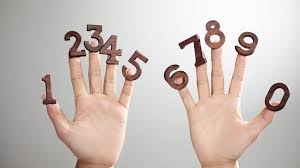Math might be intimidating for children, yet much of their experiences are shaped by adult consensus rather than a direct encounter with the subject. How can we expect children to enjoy mathematics when everyone says it's difficult rather than interesting? Here are our top 10 tips to make math more fun and interesting for your child:
Make it hands-on
Have you ever attended training or a meeting where the speaker went on and on? Do you get antsy or do your thoughts wander? We will tell you a little secret. The same is true for children. Make an interactive lesson out of a lesson that would ordinarily consist of a lecture and a worksheet. For example, you could have your kids guess the number of objects in a mystery bag or place numbers on an interactive number line.
Play math games
Math games are a tried-and-true way to infuse your classroom with interest and competition. Math games may captivate your students and connect with your lesson plan, whether they are played online or in person.
Math games that are popular include:
Card games like War, in which two students employ multiplication, subtraction, and even exponent principles to create cards that are worth more than their opponent's.
During play-based learning activities for younger pupils, math stations with number blocks and other manipulatives are set up.
Students learn basic math concepts while simultaneously developing socio-emotional skills such as turn-taking and collaboration through math board games. Fill a tic-tac-toe board with arithmetic facts, or organise a whole-class math bingo game!
Ask interesting math questions
This relates to the previous statement. Children enjoy conversing! Let's ask them some additional open-ended questions now. "Why did you choose this method to solve the problem?" is an example of this. Also, try asking questions with multiple possible answers. The kids will be inspired to find them all.
Picture books and visual aids
If you have a visual learner in your class, charts, picture books, and other visual aids can assist them to understand new concepts and provide reference points as they work.
Teachers Pay Teachers has a wealth of printables, anchor charts, and diagrams that make classroom setup simple and stress-free. Students can also create visual aids to help them recall important terminology and concepts!
Picture books are also an excellent approach to engage pupils who prefer to see and read rather than do the math.
Make it practical
You may readily locate projects that support the themes learned, especially in the early years of math instruction. Your children can assist you with shopping or paying bills, allowing them to practise basic mathematical concepts. Ask them to calculate whether the new price is correct or if you are being deceived when the discount sticker reads 30% off. Allow them to convert that jar of pennies into dollars, then consider what it would be worth in Euros — would it be enough to buy an ice cream cone in France? Let's search for it together! Even the most commonplace tasks may be quite creative, and your child will enjoy them far more than a textbook full of drills.
Read More: Importance of Mathematics in the Overall Curriculum
Get statistical with sports
Sports are all about scoring; points, runs, goals, and more on the field or on the court. However, as you delve further into the team and individual performance, you'll find a slew of numbers in the form of statistics.
So, if you have a young sports fan who is having trouble with fractions, tie it to baseball. Isn't it the same thing as 1/4 and a.250 batting average if a guy gets one hit in four at-bats?
Sports are a fantastic arena to examine mathematically, from understanding Moneyball to experimenting with probability through fantasy football.
Take a field trip
Do you live near math or scientific museum? Without supervision, your child may jump from one station to the next, gaining little from the experience. Slow down and spend time together exploring the displays.
Find out if any local factories provide tours by doing some research. Discuss how math is used to develop and construct the product with the tour guide.
Teach your youngster how to manage money
Give your child a ledger to keep track of his income and expenses, and teach him how to manage his allowance or birthday money. If he wants to borrow money from you, assist him with the interest calculation.
Learn More : Mathematics for Young Mathematicians
Make those key math periods of the year a big deal. The 100th Day of School and Pi Day, to be exact. Although these are the Big 2, there are many other ways to recognise student arithmetic achievements (for example, learning all of their multiplication facts).
Find a good private tutor or tutor your child
At some point in our lives, we've all had a lousy teacher. The math teacher is sometimes the issue. They are an important part of igniting your child's passion for maths, and if that isn't working, they can suggest some alternatives. You can either tutor your youngster yourself or hire a good private tutor who will enthusiastically and thoroughly explain various operations. Your youngster requires a positive role model who will promote learning even if the work is not completed on the first try and can explain concepts that may appear foreign or obscure. The home-based maths online tutoring help students to improve their knowledge and understanding of the learning areas.
There are plenty of ways to spark your child's interest in mathematics, which will serve him well later in life. Remember that math education is more than merely answering practice problems on worksheets; it is an essential aspect of our lives. So, get started with your child on a journey of mathematical discovery by joining the best online tutoring providers.
Read more: 10 Reasons Why Parents Choose Online Math Tutoring

